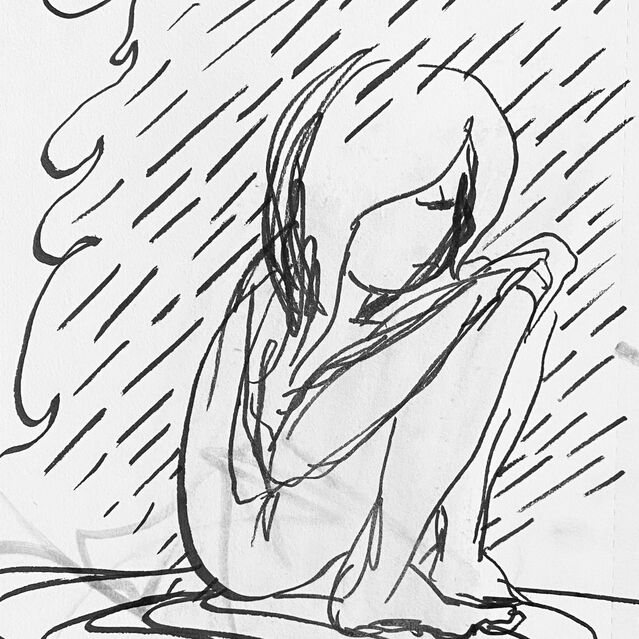Psychiatry
Drugs in My Diaper Bag
A psychologist's take on psychiatric medications for moms.
Posted March 9, 2021 Reviewed by Ekua Hagan
Momming is hard, and this pandemic has made it exponentially harder. One thing that’s sustained me over the past several months is watching old friends post pictures and videos of their sometimes hilarious, occasionally bratty, and often cute kids (many of whom I’ve never met in person). My favorite Instagram exchanges typically start with comments about these videos. It’s allowed me to reconnect with women I haven’t seen in years through this strange, shared space of Being a Mom During COVID.
A few months into the pandemic, I noticed a few jokes pop up in these conversations that caught me a little off guard. Maybe because I’m a psychologist, or maybe because we’re all just getting tired of holding up appearances, more than one friend would add at the end of their note to me, “Thank God for Zoloft” or “Lexapro’s working overtime today,” followed by a quick and playful “LOL.”
The other day, another such message popped up, and I could almost feel my friend sigh through the screen as she read my reply: “Same, girl, same.”
I resisted taking medication for a really long time—especially long if you consider that as someone with a Ph.D. in psychology, I should have been the first one on the boat. I knew the signs. I knew the risks of letting my mental health problems go untreated, and I knew what research said would work if only I could scrounge up the courage (and vulnerability) to make an appointment. But I also thought, as a trained clinician, that I could easily pull a “Physician, heal thyself” and make it out without any help from others at all. I’m a professional, for God’s sake!
I was terribly wrong. After trying every self-help tactic I knew, I finally admitted some years ago that I needed another pair of eyes and ears. I reached out, I tried a lot of different things, and I eventually found some things that helped me. Lo and behold, they were the very same things I knew from textbooks and PubMed probably would: Therapy, social support, and ... gasp! ... medication.
Many of us are terrified to admit to someone else that we are depressed or anxious, let alone that we are so depressed or anxious that we take medicine for it. Although mental health stigma has come a long way since the days of institutionalization and dismissing women’s problems as “hysteria,” most of the women I know are still loathe to admit any struggle or secret that hints at psychological trouble.
Though there are many problems with the medical or disease model of mental health problems, the fact remains that if most of us were told to take a pill for our blood pressure, we would do so without question. When we need antibiotics, we can’t get to the pharmacy fast enough. We’ll even spend thousands on gym memberships and nutrition coaches to “fix” physical health problems we may not even have. Yet if something is amiss in our minds, we hesitate. We stay quiet about it. If we seek help, we do it oh-so-very privately… and even we psychologists rarely share with each other that we, too, need a little help sometimes.
Therapy is becoming less of a closeted affair, but medications are still tiptoed around. Society seems to have conceded that we all could benefit from “talking it out” from time to time, but I see a lot of assumptions, in the media especially, about what taking medicine means. It comes with some heavy baggage, often bringing up understandable practical concerns like how it might affect health insurance or official records, career or job selection, or eligibility for other types of services or opportunities. It can be expensive and tiresome to wade through all the different med options and find a regimen that gives the maximum benefit with minimum side effects. And finding a psychiatrist who takes your insurance and also has an opening can feel like trying to get into Yale Law.
But in addition to the practical, medications, more than any other form of help, stir up a ton of questions about who we are—about identity, meaning, and character. The existential and philosophical quandaries surrounding psychiatric medications are ever-present and never-ending. I think that’s why we have such a hard time swallowing that pill (pun intended).

I’m not a psychiatrist and I don’t claim to know all the answers, but from research and clinical experience I can tell you that most psychiatric drugs do work. That is, they largely show both statistically and clinically significant positive impact in terms of reducing symptoms and improving outcomes for a range of mental health struggles. No, they are not perfect, and yes, they have side effects that must be taken into consideration, but they are getting better all the time and in many if not most cases, they help. They can act alone or serve as a “gateway drug” to therapy, social support, and other forms of much-needed help.
When I look at my little girl’s face and am able to feel joy, to experience even a fleeting moment of contentment, to remember how good life can be, the concerns about stigma and the existential debates, ironically, slip away. I remember the horrifying places I’ve been, the darkest edges of experience, where these moments were not even conceivable, let alone possible. I think of the research on how very, very important maternal mental health is for developing brains and bodies, and how my life looks with and without the help. I look at my husband, who reminds me that I am not broken, but brave, and who has never blinked even a hint of a “yes” when I’ve asked if taking medication makes me a bad person.
And when I reach in my diaper bag and accidentally grab the Prozac instead of the pacifier, I try to laugh it off and remember how many women are out there watching, thinking, “Same, girl, same.”
If you need help, get it, in any form you can. If one of those forms happens to be medication, remember that the person who takes control of their own mental health is a thousand times a better role model for her children than someone who suffers in silence, allowing her children to think that it’s ok to do the same.




